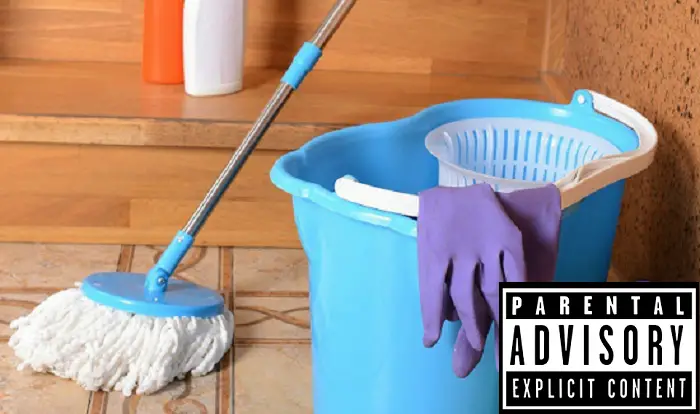if you get a felony as a minor does it go away when you turn 18?
Imagine turning 18, blowing out your candles, and poof! Your juvenile felony record magically disappears. Sounds like a dream, right? Well, buckle up, because we’re about to take a wild ride through the twisty world of juvenile felony records. And trust me, it’s more complicated than your first attempt at filing taxes!
Shocking Stats That’ll Make Your Jaw Drop
Before we dive in, let’s hit you with some mind-blowing facts:
- 😱 Over 48,000 youth are confined in juvenile facilities on any given day
- 🤯 60% of juveniles arrested for a felony will be rearrested within 3 years
- 😳 Only 46% of states automatically seal juvenile records upon reaching adulthood
- 🙀 95% of youth in the justice system have experienced trauma
- 😵 A juvenile with a record is 13% less likely to graduate high school
Feeling overwhelmed? Don’t worry, we’re about to break it all down faster than a teen’s excuse for missing curfew!
Does Your Juvenile Felony Really Disappear?
Alright, let’s cut to the chase. Does your juvenile felony magically vanish when you turn 18? Short answer: Not automatically, and not everywhere.
Let’s dive deeper into the complexities of juvenile felony records:
Sealing vs. Expungement:
Sealing: The record still exists but is hidden from public view. It may still be accessible to law enforcement and some government agencies. In most cases, you can legally state that you don’t have a record for employment purposes.
Expungement: This process destroys the record as if it never existed. It’s more comprehensive than sealing but is not available in all jurisdictions or for all types of offenses.
State Variations
Automatic Sealing: Some states, like California and Pennsylvania, have laws that automatically seal certain juvenile records when the individual turns 18 or after a specified waiting period.
Petition Required: Many states, including Florida and Texas, require individuals to file a petition with the court to have their juvenile records sealed or expunged. This often involves demonstrating rehabilitation and meeting specific eligibility criteria.
No Sealing Available: A few states, such as Arizona, do not have provisions for sealing juvenile records, meaning they remain accessible unless expunged through a separate process.
Federal Crimes
No Automatic Process: Unlike some state systems, the federal system does not provide for automatic sealing or expungement of juvenile records.
Petition for Expungement: For federal juvenile records, you must petition the court for expungement. This process is governed by 18 U.S.C. § 5038(a)(2) and is generally more challenging than state-level expungement.
Limited Eligibility: Federal expungement for juveniles is typically limited to drug possession offenses committed while under 21 years old.
Severity Matters
Minor Offenses: Less serious offenses, such as misdemeanors or non-violent felonies, are more likely to be eligible for sealing or expungement.
Serious Felonies: Violent crimes, sex offenses, and other severe felonies often have more stringent requirements for sealing or may be ineligible altogether.
Repeat Offenses: Multiple offenses, even if minor, can complicate the sealing or expungement process and may result in records remaining accessible for longer periods.
Remember, while these points provide a general overview, the specific laws and procedures can vary significantly between jurisdictions. It’s always advisable to consult with a legal professional familiar with juvenile law in your specific area for the most accurate and up-to-date information.
Example: Tim got caught joy-riding at 16. In California, his record might be automatically sealed at 18. But if Tim was in Florida, he’d need to petition the court and prove he’s been a good boy since then.
Truth or Bull💩: Juvenile Felony Edition
Let’s play a quick game of “Truth or Bull💩” to clear up some common myths:
- “All juvenile records are automatically sealed at 18.” • Bull💩! Many states require you to petition the court.
- “A sealed juvenile record is gone forever.” • Bull💩! Sealed doesn’t mean destroyed. Some entities can still access it.
- “You can lie about a sealed juvenile record on job applications.” • Truth! …mostly. For most jobs, you can legally say you have no record if it’s sealed.
- “Juvenile records don’t count for college applications.” • Bull💩! Some colleges ask, and lying can get you in hot water.
- “A juvenile felony won’t affect your adult life if it’s sealed.” • Bull💩! It can still impact things like military enlistment and some professional licenses.
Preventive Measures: Avoiding Juvenile Felonies
Prevention is always better than cure, especially when it comes to juvenile felonies. Here are some serious, actionable steps to help young people avoid legal troubles:
Understand the Law:
Educate yourself on local laws and regulations • Recognize that ignorance of the law is not a valid defense
Choose Positive Influences
Surround yourself with peers who make good choices • Seek mentorship from responsible adults in your community
Develop Critical Thinking Skills:
Practice assessing potential consequences before acting • Learn to recognize and avoid high-risk situations
Engage in Constructive Activities:
Participate in after-school programs, sports, or community service • Develop skills and hobbies that build self-esteem and purpose
Seek Help When Needed:
Don’t hesitate to reach out to counselors, teachers, or trusted adults • Address underlying issues like substance abuse or mental health concerns proactively
Real Talk: People Who’ve Been There, Done That
Let’s hear from those who’ve walked the juvenile felony walk:
- Sarah, 25: “I got caught with drugs at 16. Thankfully, California sealed my record at 18. I’m now a social worker helping at-risk youth.”
- Marcus, 30: “My assault charge at 17 in Texas wasn’t automatically sealed. I had to petition at 25. It was a long process, but worth it for a clean slate.”
- Jamal, 22: “I’m still fighting to seal my record in Florida. It’s affecting my job prospects. I wish I’d known the consequences back then.”
- Emily, 28: “My federal juvenile record for hacking hasn’t been expunged. It’s made getting tech jobs… interesting. But some companies see it as a skill!”
The Numbers Don’t Lie: Juvenile Justice in Black and White
Let’s break it down with some cold, hard stats:
| Category | Percentage |
| Youth with records who don’t know they can seal it | 1% |
| Juvenile arrests that are felonies | 25% |
| States with automatic record sealing | 46% |
| Youth with record who don’t know they can seal it | 66% |
| Decrease in recidivism after record sealing | 22% |
Conclusion: Your Future Isn’t Sealed (But Your Record Might Be!)
So, does a felony as a minor go away when you turn 18? Like most things in law (and life), it’s complicated. But here’s the bottom line:
- Know your state’s laws
- Take action to seal or expunge if needed (best option)
- Learn from the past, but don’t let it define your future
Remember, a juvenile record doesn’t have to be a life sentence. With the right knowledge and action, you can move forward and achieve your dreams. Whether you’re trying to seal a record or avoid getting one in the first place, stay informed and stay positive!
Need help navigating the maze of juvenile record sealing? Don’t go it alone! Check out a legal professional for expert guidance in clearing your past and brightening your future!
*Disclaimer: Always carefully research and choose legal services based on your specific needs and circumstances.







